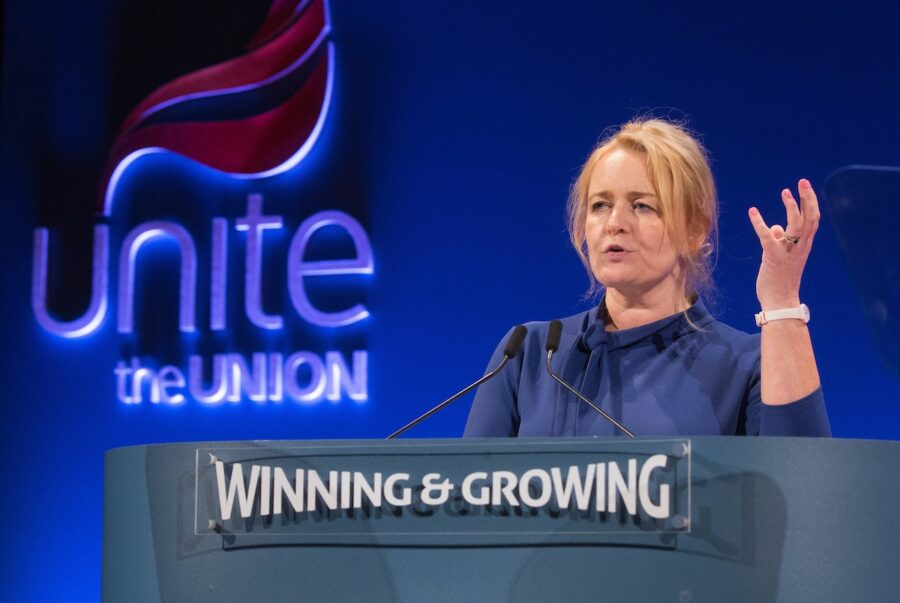The UK government’s plan to boost economic growth through artificial intelligence (AI) has raised concerns among trade unions, with Unite, the UK’s largest trade union, demanding stronger protections for workers as the technology becomes increasingly integrated into the workplace.
In a speech on Monday, Prime Minister Keir Starmer revealed a £14 billion AI Opportunities Action Plan aimed at using AI to drive innovation across public services and businesses. Starmer emphasized that the technology could generate up to £47 billion annually for the UK economy and create more than 13,000 jobs.
UK as a ‘Global Leader’ in AI
“Artificial Intelligence will drive incredible change in our country,” Sir Keir said. “From teachers personalising lessons to supporting small businesses with their record-keeping to speeding up planning applications, it has the potential to transform the lives of working people.”
The prime minister added that “the AI industry needs a government that is on their side, one that won’t sit back and let opportunities slip through its fingers.”
He said that amid tough competition, the UK could not stand idly by but “must move fast and take action to win the global race.”
Sir Keir vowed: “Our plan will make Britain the world leader. It will give the industry the foundation it needs and will turbocharge the Plan for Change. That means more jobs and investment in the UK, more money in people’s pockets and transformed public services.”
The strategy includes the establishment of AI Growth Zones, designed to accelerate AI adoption and infrastructure development in key sectors. It will be also supported by commitments from major tech firms to help position the UK as a global leader in AI innovation.
Unite Criticism
However, Unite, which represents millions of workers in industries like manufacturing, transport and public services, expressed concerns that the rapid rollout of AI could lead to job displacement, discriminatory practices and increased surveillance of workers.
Sharon Graham, the union’s general secretary, said that while AI presented opportunities, it should not come at the cost of workers’ rights.
“The UK needs to embrace new technologies, but we also need proper protections from AI’s pitfalls and workers must have a say in how that happens,” she said.
Concerns are growing among workers, particularly in sectors such as transport and public services, where AI’s integration could disrupt long-established job roles. Graham warned that AI tools might exacerbate existing inequalities by perpetuating biases in decision-making processes. Workers have already expressed anxiety over AI systems potentially replacing human roles or leading to a dehumanisation of work environments.
“Our members are already reporting major changes to working conditions due to the introduction of AI, which creates new risks and all too often results in workers feeling alienated and demotivated,” Graham added.
She said Unite had “serious concerns” about surveillance and also discrimination when using AI, especially relating to what she called “‘high-risk’ decisions like recruitment, performance assessments and discipline”.
Graham added that “[a]fter years of fighting against discrimination, there is now the genuine threat of it being further embedded through AI, against women, Black and Asian ethnic minority, disabled and LGBTQ+ workers. The introduction of AI in the workplace must be something that happens with workers and not to workers. Government, employers and unions all need to be working together to avoid the potential dangers of workplace AI.”
‘Welcome’ AI News
Hayfa Mohdzaini, senior policy and practice adviser for technology for HR body the Chartered Institute of Personnel and Development (CIPD), welcomed the government’s AI initiative, saying that workers would ultimately benefit.
“We welcome the government’s plans to boost the use of AI across the UK’s public services, which could bring significant productivity gains to the UK economy,” she said.
Mohdzaini said that “[l]etting AI handle repetitive and administrative tasks can help workers deliver more human public services. Used well, AI can enhance jobs to make them more fulfilling for people.”
But she warned that employers should monitor how AI is introduced into the workplace and actively manage any associated risks.
She pointed to a poll of more than 1,500 people taken by CIPD in January revealed that six in ten workers trusted AI like ChatGPT and others to give them the information they needed. They did not, however, trust the technology to make important work decisions, the survey found.
“The HR profession should be at the forefront of discussions about AI implementation in their organisations. Employers and their HR teams should introduce clear guidance covering the ethical and responsible use of AI at work, data security and fair treatment of people,” said Mohdzaini.


